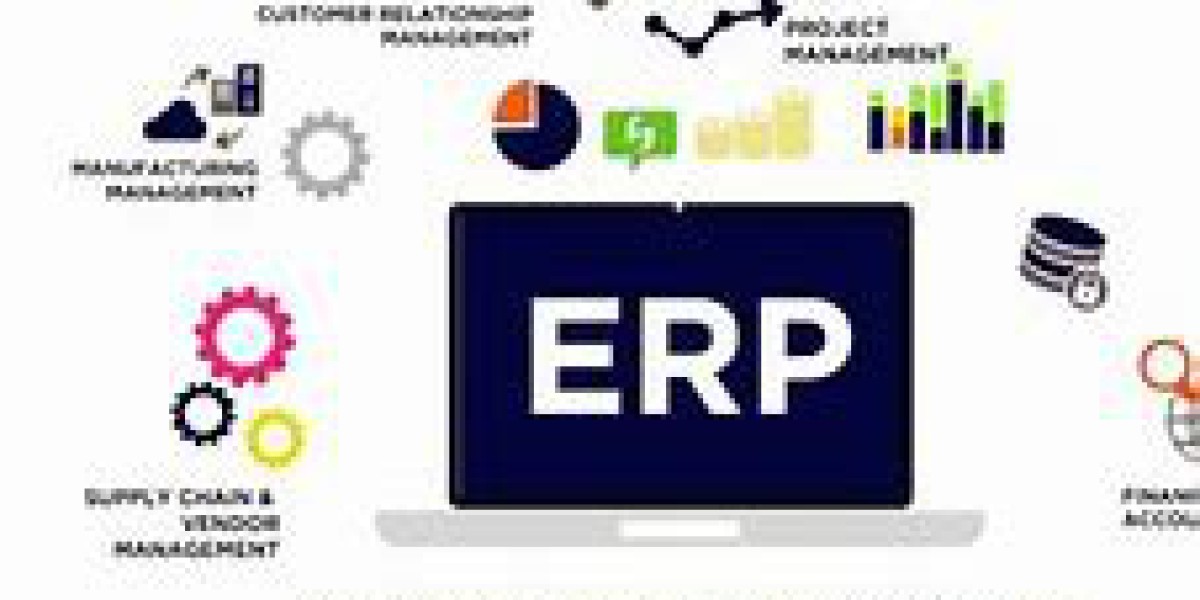One day, you'll realize, "Houston, there's something wrong with our system." Each department and function has its system and "source of truth," which creates confusion and ultimately affects your productivity and customer orientation. You may hear your customers comment that "your left-hand doesn't know what your right hand is doing." Well, it's time for a fundamental change.
An ERP system for rescue
An enterprise resource planning (ERP) system integrates all departments and functions of a company into one system that can meet the specific needs of all the different departments. It's a coordination tool that allows you to scale and stay agile in the future.
ERP integrates all the departments and functions of your company into one system that can meet the specific needs of all the different departments
Finance, manufacturing, and warehouse still have their software systems, it's just that now these systems are linked together, and finance or customer service personnel can instantly access the warehouse system to see if an order has been shipped and paid for. Employees in manufacturing can check the warehouse's systems to see if the necessary components have been delivered.
You can plan, and everyone in the company has the data they need to coordinate activities to better serve customers and strategic goals.
For companies, regardless of the industry, ERP systems offer many great benefits. Let's take a look at the biggest four:
#1 Your transparency/visibility into what is happening throughout your organization
With an ERP system, your leadership team will no longer spend limited time figuring out what's going on by accessing and analyzing data from multiple non-integrated systems. Instead, an ERP system gives you a real-time snapshot of what's happening throughout your organization. You can view your company's KPIs (key performance indicators) through the dashboard. To say that this visibility supports coordination and better decision-making across departments would be an understatement. You'll work better internally, which means you'll deliver on your promises to customers
#2 A version of Truth eliminates redundant/manual effort
An ERP system eliminates the need to manually enter redundant data into each system/silo memory, prevents errors caused by such redundancy, and allows your employees to be "on the same page" as you manage your business. You can't be customer-centric if your employees keep asking customers for the same data. With an ERP system (e.g., through CRM), all customer relationship data is entered once in one system and is accessible to all of your people on any device used inside and outside the facility. A single source of truth is also fundamental to any effective digital transformation you want to drive within your company.
#3 Process optimization and standardization
You can standardize processes and increase efficiency across your company. So instead of paying suppliers differently than HR or marketing, your company pays suppliers the same way, making it easier for the finance department to track (and manage) your company's spending and making negotiations with suppliers more straightforward. The ability to standardize through an ERP system is especially important if you've grown through the acquisition of other companies that can be more easily integrated into your way of doing things through your ERP system.
#4 Flexibility today and tomorrow
A good ERP system is flexible enough to make your company future-proof. With a flexible ERP system, you can add modules (such as HR, finance, etc.) at any time, and your trusted professional ERP partner will constantly update your system to take advantage of emerging technologies. You can only buy the modules you need today, but you can add modules later as you grow. Plus, as you grow, you don't need a huge, hard-to-hire IT team to build and implement new systems. Unlike traditional IT systems that are rigid and non-integrated, ERP systems are integrated, scalable, and support your future growth. ERP systems give you a scalable development platform that allows you to easily integrate new technologies emerging today and in the future, such as the Internet of Things, instead of spending all your time fixing aging legacy IT systems.
Alice
29 Blog posts



